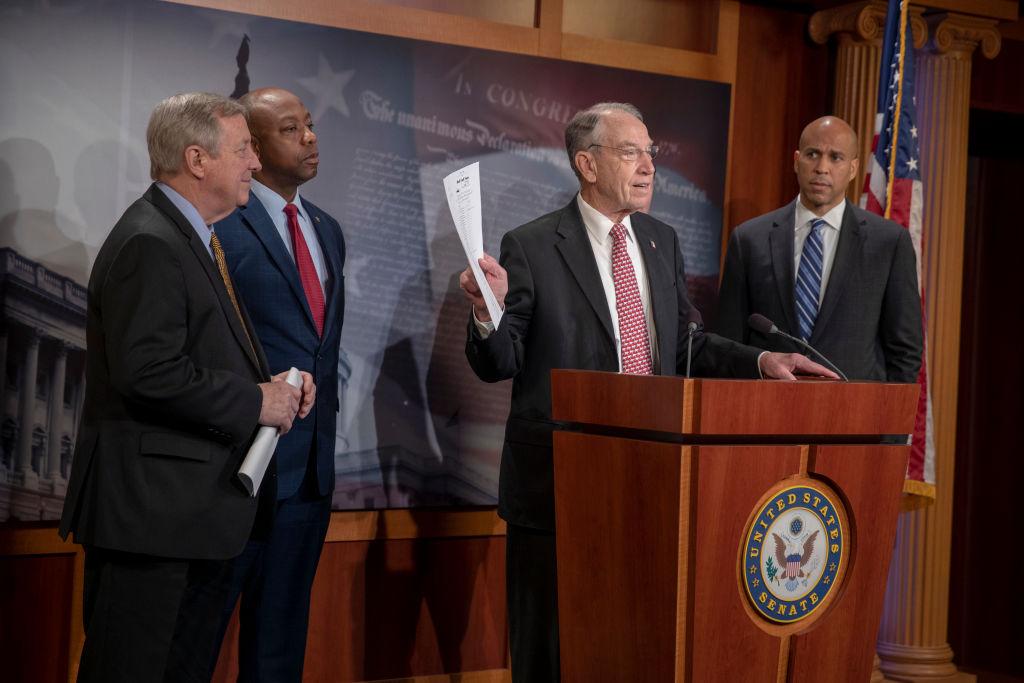The U.S. Senate on Dec. 18 passed a landmark prison-reform bill, dubbed the First Step Act, that would help inmates readjust to society after completing their sentences, addressing concerns that too many Americans have been imprisoned for nonviolent crimes without support later on.
The bipartisan bill, approved by a vote of 87–12, will expand programs that reduce the recidivism risks of prisoners, such as job training programs, while also reducing the sentences for some low-level, nonviolent offenders. It would also adjust certain mandatory minimum sentences and cut costs.





